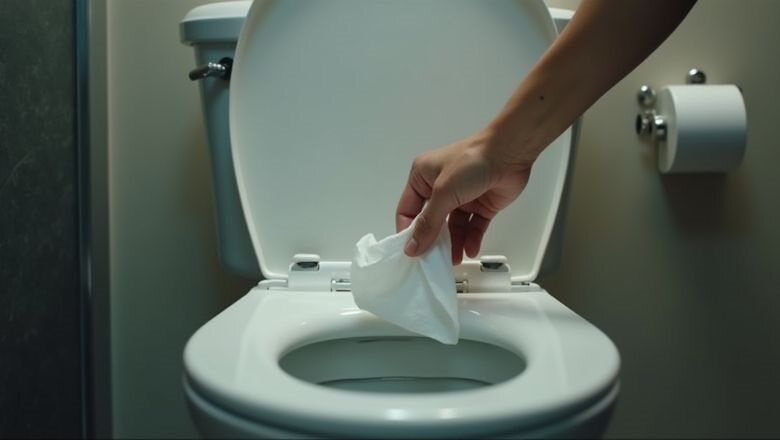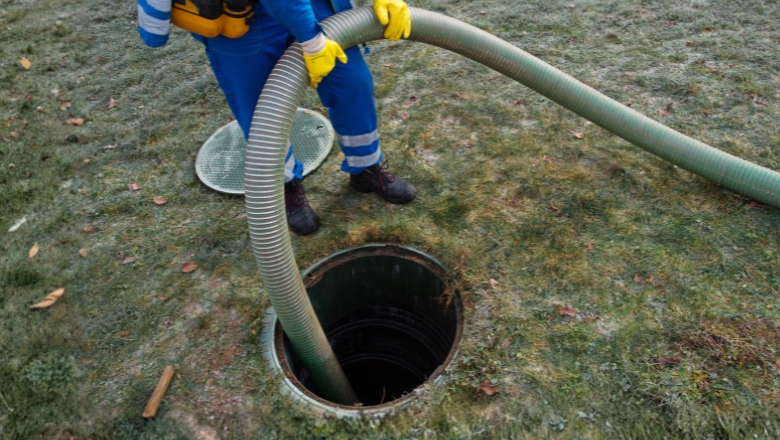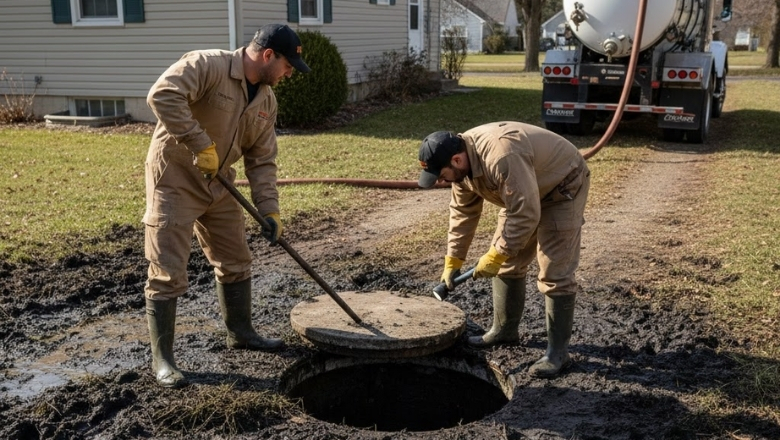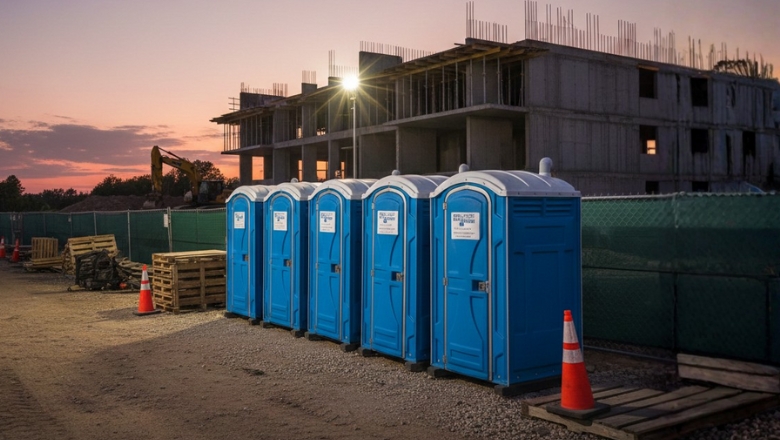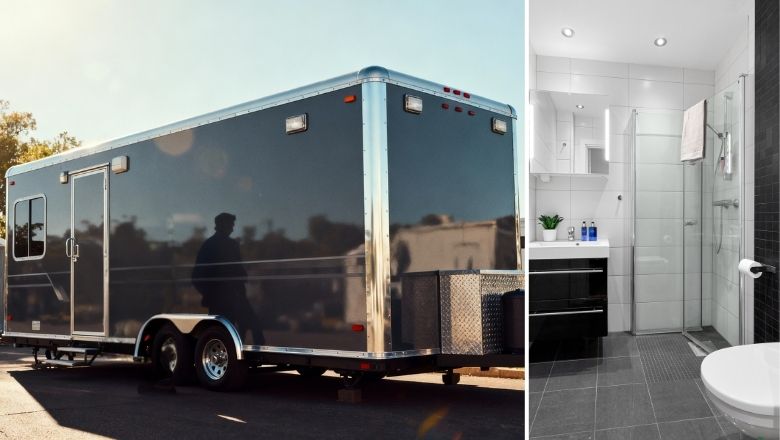Flushable wipes have become super popular over the last few years, providing ease of use and increased personal hygiene. Most homeowners believe that flushable wipes are safe for septic systems, considering they are “biodegradable and decomposable .” The truth is otherwise. Even though these products guarantee easy flushing, they can harm septic tanks and plumbing systems in the long run.
Furthermore, if you’re planning an outdoor event, construction project, or any temporary gathering in Idaho, it’s essential to consider proper sanitation solutions. Whether you need a porta potty rental in Rigby, Idaho Falls, Pocatello, Rexburg, Twin Falls, or surrounding areas, choosing the right portable toilet option can help maintain hygiene while preventing plumbing issues.
This blog post will explore the reality behind flushable wipes, their effects on septic systems, and the best options for a healthy and efficient wastewater treatment system.
What Makes a Wipe “Flushable”?
Marketing vs. Reality – Are They Really Safe?
Manufacturers market chemical-free flushable wipes as safe for septic systems, claiming they break down similarly to toilet paper. In reality, experience and research paint a different picture. While toilet paper disintegrates quickly when exposed to water, most flushable wipes maintain their form for hours. They break down slowly, which creates a high chance of clogged pipes and septic backup.
How Different Materials Break Down in Water
According to Rexburg’s most credible porta potty rental service experts, toilet paper breaks down rapidly when exposed to water, which is perfectly suitable for septic systems. Flushable wipes, on the other hand, usually contain microplastics, synthetic materials, binders, and chemical treatments that resist rapid breakdown. Even if labeled as biodegradable, these materials tend to break down only in several weeks or months and thus contribute to buildups in your system over a period of time.
Septic-Safe vs. Biodegradable: What’s the Difference?
Septic-safe products are specifically formulated to break down entirely within a septic system without altering the bacterial environment. However, biodegradable wipes might take way too long to degrade and could clog before they can break down. Understanding this distinction is extremely important for maintaining a functional septic tank.
How Flushable Wipes Affect Your Septic System
Do They Dissolve Like Toilet Paper?
Even though they are branded flushable, these wipes do not break down like toilet paper. Based on independent studies, these wipes still hold up even after many hours in the water, so they can clog pipes and septic systems instead of properly disintegrating.
The Risk of Clogged Pipes and Drain Fields
When wipes get clogged in plumbing systems, they form obstructions that may cause severe backups. Residents in Rexburg, Idaho Falls, Pocatello, Twin Falls, Rigby, and nearby locations have reported costly repairs due to clogged septic lines brought about by flushable wipes. These are more frequent in households with old plumbing systems or high wastewater usage.
Impact on Beneficial Bacteria in the Septic Tank
Septic tanks use healthy bacteria to decompose organic waste. When flushable wipes deposit foreign chemicals and man-made materials in the system, they interfere with this fragile balance of bacteria. According to the most popular portable toilet rental experts in Idaho Falls, this can impair the waste breakdown process, causing stench, sludge accumulation, and more frequent septic pumping needs.
Warning Signs That Flushable Wipes Are Harming Your System
Slow Drainage and Frequent Clogs
If your sinks or toilets don’t drain as quickly as normal, it may be a sign that a clog is developing in your pipes. Accumulated wipes can create a barrier that restricts water flow, resulting in slow draining and possible back-ups.
Bad Odors Coming from Drains or Outdoors
Leading porta potty rental experts in Rigby reveal that a major red flag is any foul odor from your drains or the surrounding area of your septic tank. When wipes get trapped and reduce waste decomposition, odors from stagnant waste products can begin to permeate, indicating prospective septic failure.
Increased Need for Pumping Services
A well-maintained septic tank usually requires pumping every 3–5 years. If you have to schedule pump-outs more often, flushable wipes could be the main culprit behind excessive sludge buildup.
What to Do If You’ve Been Flushing Wipes?
Immediate Steps to Prevent Further Damage
If you have been using flushable wipes, it’s best to discontinue use immediately to avoid further damage to your septic system. Top porta potty rental specialists in Twin Falls reveal that you can also utilize a drain cleaner made for septic tanks to break down the remaining waste.
When to Call a Professional for Septic Pumping
If you experience slow drainage, backups, or odors, it may be time to call a professional for septic pumping. Our team offers expert septic services, ensuring your tank is cleaned efficiently and is functioning properly.
Long-Term Prevention Strategies :
- Only flush toilet paper and human waste.
- Use septic-safe products for personal hygiene.
- Schedule regular septic tank maintenance service with trusted providers like MVP Rentals.
The Best Alternatives to Flushable Wipes
Septic-Safe Wet Wipes That Decompose Faster
If you prefer wet wipes, opt for septic-safe products like chemical-free, flushable wipes that break down quickly and won’t harm your system.
Home Solutions for Personal Hygiene
Reusable washcloths or bidets can be excellent alternatives that eliminate the need for wipes. Many homeowners in Idaho Falls, Rigby, Rexburg, Twin Falls, and neighboring communities have made the switch for both environmental and cost-saving benefits.
Proper Disposal Methods to Avoid Issues
If you must use flushable wipes, dispose of them in a trash bin instead of flushing them. This simple habit can prevent major plumbing issues and save thousands in potential repairs.
Final Takeaway
Flushable wipes may seem convenient, but they pose significant risks to septic systems. From clogged pipes to disrupted bacterial balance, these wipes can lead to costly plumbing and septic repairs. You can keep your septic system in top shape by switching to septic-safe products, following best disposal practices, and scheduling regular maintenance with MVP Rentals. If you need professional septic tank maintenance or porta potty rental services in Idaho Falls, Pocatello, Rexburg, Rigby, Twin Falls, or surrounding areas, contact MVP Rentals today at (208) 244-7789 for expert assistance.
FAQs
1. Can I Flush Wipes If I Have a Septic Tank?
Pocatello’s most credible portable toilet rental service experts reveal that even flushable wipes can cause blockages and disrupt the entire bacterial balance in your septic system.
2. How Long Do Flushable Wipes Take to Break Down?
Unlike toilet paper, which dissolves within minutes, most flushable wipes take weeks or even months to break down.
3. Can Septic-Safe Additives Help Break Down Wipes?
While some additives claim to break down wipes, they are not a guaranteed solution. Even the most popular porta potty rental service experts in Rexburg believe that the best prevention is to avoid flushing them altogether.
4. What’s the Best Way to Dispose of Wipes Safely?
You can place used wipes in a trash bin instead of flushing them to prevent plumbing and septic issues.
5. How Can MVP Rentals Help Maintain My Septic System?
Our team at MVP Rentals offers professional septic pumping, portable toilet rental, and expert septic maintenance services in Rexburg, Idaho Falls, Pocatello, Twin Falls, Rigby, and surrounding areas to keep your system running efficiently.

